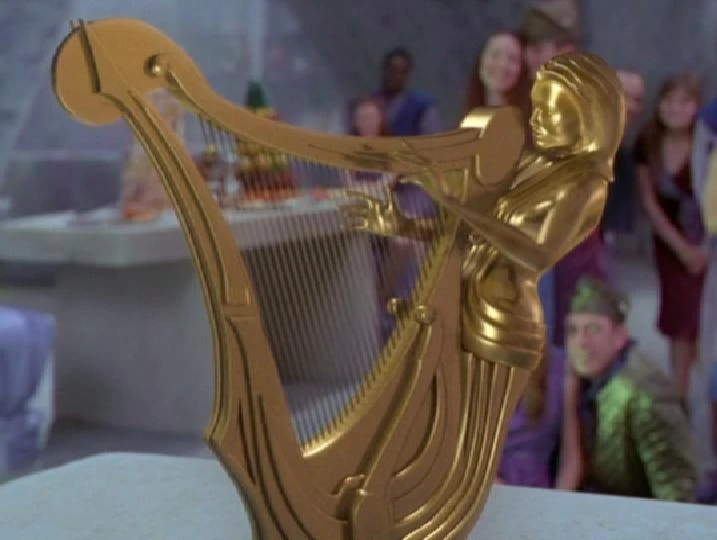Meaning
Meaning in language is a complex and multifaceted concept that has been the subject of extensive philosophical and linguistic inquiry.
At its core, meaning refers to the significance or interpretation we attach to words, phrases, sentences, and other linguistic units.
This interpretation is not inherent in the words themselves but rather arises from a complex interplay between the words, the context in which they are used, and the knowledge and experiences of the speaker and listener.
Conceptual significance plays a crucial role in shaping meaning.
Concepts are mental representations of ideas or objects, and language allows us to express and share these concepts with others.
When we encounter a word, our conceptual system activates relevant knowledge associated with that concept, contributing to our understanding of its meaning.
The origin and history of a name can also significantly contribute to its meaning.
For example, the name “Harmonia,” derived from the Greek word for “harmony,” carries connotations of balance, agreement, and peace.
Understanding the historical context in which a name emerged can provide valuable insights into its deeper significance.
Furthermore, cultural and societal norms influence the conceptual associations we make with names.
A name that is considered auspicious or meaningful in one culture may hold different connotations or even negative meanings in another.
Therefore, appreciating the cultural context is essential for comprehending the full range of meaning a name can encompass.
Harmonia’s name resonates with a sense of balance, concord, and unity. Its linguistic roots trace back to ancient Greek, where “harmonia” (ἁρμονία) denoted both musical harmony and a state of agreement or peace.
In its original context, “harmonia” referred to the pleasing arrangement of sounds in music, achieved through the harmonious combination of different notes. This metaphorical extension into the realm of human relationships signified a state of equilibrium and accord between individuals or groups.
The Greek root of “harmonia” is the verb “harmonizein” (ἁρμονίζειν), meaning “to bring into harmony.” This verb further underscores the concept of creating unity through the careful arrangement and coordination of elements.
The name Harmonia, therefore, carries a profound symbolic weight. It evokes not only the aesthetic beauty of musical consonance but also the deeper human aspiration for peace, balance, and harmonious relationships.
Origin
Harmonia is a name with rich historical and mythological roots. Its meaning is closely tied to its origins in Greek mythology.
The name Harmonia derives from the Greek word “ἁρμονία” (harmonia), which means “harmony,” “agreement,” or “concord.” This directly reflects the primary association of the name with the Greek goddess of harmony, also named Harmonia.
In Greek mythology, Harmonia was a pivotal figure. She was the daughter of Ares, the god of war, and Aphrodite, the goddess of love and beauty. This union might seem paradoxical, but it highlights the essential balance and interplay between these seemingly opposing forces. Just as love can foster peace and understanding, so too can harmony emerge even amidst conflict.
Harmonia’s story further emphasizes the importance of unity and concord. She married Cadmus, a legendary hero who founded the city of Thebes in Greece. Their union symbolized the establishment of order and civilization following the chaotic reigns of early mythical figures.
Their children included Ino, Semele, Agave, and Polydorus, all significant figures in Greek mythology, further reinforcing the theme of harmony’s impact on family and society.
The name Harmonia has been used across centuries and cultures, often carrying connotations of peace, balance, and beauty. It evokes a sense of tranquility, suggesting an individual who strives for understanding and unity.
The name Harmonia is of Greek origin, derived from the word “harmōnia,” meaning “agreement,” “harmony,” or “conjunction.”
In Greek mythology, Harmonia was a goddess representing harmony and concord. She was the daughter of Ares, the god of war, and Aphrodite, the goddess of love and beauty. Her union with Cadmus, the founder of Thebes, symbolized the potential for peace and order even in the midst of conflict.
The name Harmonia reflects a deep-seated human desire for balance and unity. It embodies the ideal of harmonious relationships and peaceful coexistence. The association with the Greek goddess adds an element of divinity and reinforces the name’s meaning.
Although primarily recognized as a classic Greek name, Harmonia has found its way into various cultures and languages over time.
The influence of classical mythology and literature has spread across centuries and continents, contributing to the enduring appeal of names like Harmonia.
History
The name *Harmonia* has deep roots in ancient Greek mythology and philosophy.
*Harmonia* was a primordial goddess, often depicted as the personification of **harmony**, **agreement**, and **concord**. She was the daughter of *Ares*, the god of war, and *Aphrodite*, the goddess of love and beauty.
Her parents’ contrasting natures — war and love — presented a paradox that reflected the delicate balance she embodied. *Harmonia* symbolized the power of unity and peace amidst discord.
In Greek mythology, *Harmonia* was renowned for her role in fostering peaceful relationships and resolving conflicts. She was often invoked in rituals and ceremonies designed to promote harmony and well-being.
The name *Harmonia* also carries linguistic significance, derived from the ancient Greek word *ἁρμονία* (*harmonía*), meaning “harmony” or “agreement.” This root underscores the profound connection between the name and its underlying concept.
Throughout history, the name *Harmonia* has been embraced across cultures and languages. Its timeless appeal lies in its association with positive values such as unity, peace, and balance — qualities that continue to resonate deeply with people today.
Harmonia, a name imbued with ancient Greek roots, carries a profound meaning resonating through centuries of cultural influence.
Derived from the Greek word “ἁρμονία” (harmonia), which translates to “harmony,” “agreement,” or “order,” the name embodies ideals of balance, concord, and unity.
In ancient Greek mythology, Harmonia was a prominent figure, representing the embodiment of harmony itself. She was the daughter of Ares, the god of war, and Aphrodite, the goddess of love and beauty.
This unusual parentage highlighted the inherent power of balance and unity even in seemingly contrasting elements.
Harmonia’s marriage to Cadmus, founder of Thebes, further cemented her association with order and prosperity.
Their union brought peace and stability to Thebes, symbolizing the positive outcomes that arise when harmony prevails.
Beyond mythology, the name Harmonia has echoed through history, appearing in various artistic and literary works.
Composers have drawn inspiration from its musical connotations, while poets and novelists have explored its themes of balance and inner peace.
In modern times, Harmonia retains its timeless elegance and profound meaning. It resonates with parents seeking to bestow upon their daughters a name that reflects aspirations for a harmonious and fulfilling life.
- Best Datanyze Alternatives for 2025 - April 26, 2025
- Best Coldlytics Alternatives for 2025 - April 25, 2025
- Best Brevo Alternatives for 2025 - April 25, 2025


